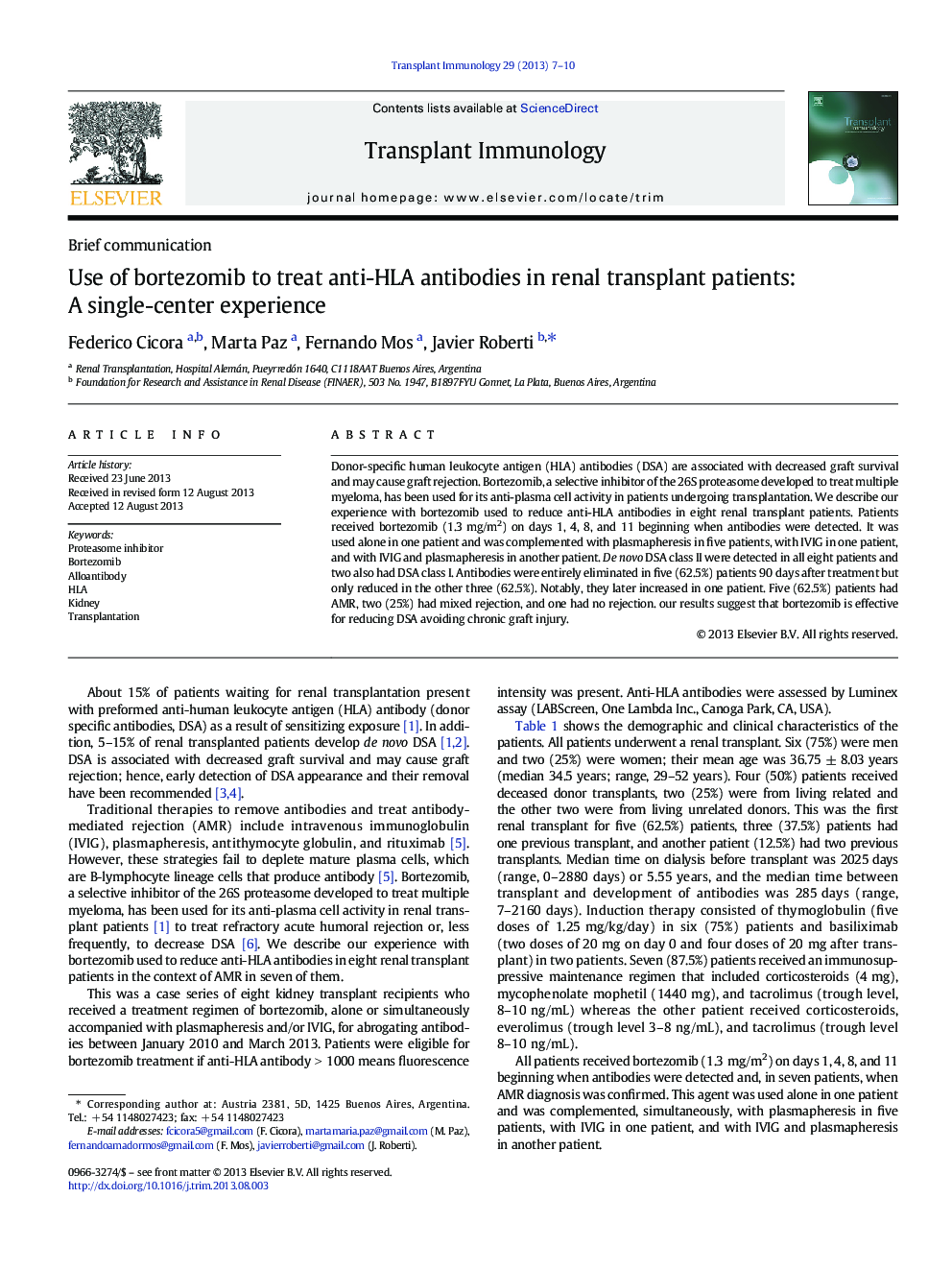| Article ID | Journal | Published Year | Pages | File Type |
|---|---|---|---|---|
| 6126018 | Transplant Immunology | 2013 | 4 Pages |
Abstract
Donor-specific human leukocyte antigen (HLA) antibodies (DSA) are associated with decreased graft survival and may cause graft rejection. Bortezomib, a selective inhibitor of the 26S proteasome developed to treat multiple myeloma, has been used for its anti-plasma cell activity in patients undergoing transplantation. We describe our experience with bortezomib used to reduce anti-HLA antibodies in eight renal transplant patients. Patients received bortezomib (1.3Â mg/m2) on days 1, 4, 8, and 11 beginning when antibodies were detected. It was used alone in one patient and was complemented with plasmapheresis in five patients, with IVIG in one patient, and with IVIG and plasmapheresis in another patient. De novo DSA class II were detected in all eight patients and two also had DSA class I. Antibodies were entirely eliminated in five (62.5%) patients 90Â days after treatment but only reduced in the other three (62.5%). Notably, they later increased in one patient. Five (62.5%) patients had AMR, two (25%) had mixed rejection, and one had no rejection. our results suggest that bortezomib is effective for reducing DSA avoiding chronic graft injury.
Related Topics
Life Sciences
Immunology and Microbiology
Immunology
Authors
Federico Cicora, Marta Paz, Fernando Mos, Javier Roberti,
